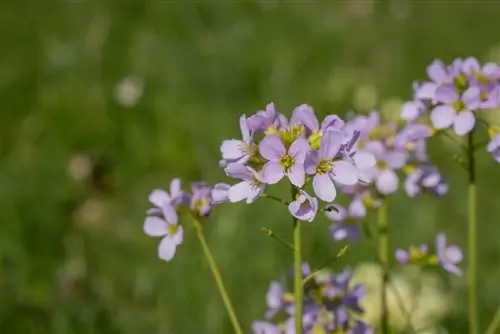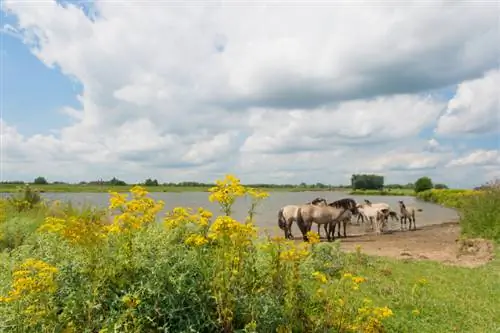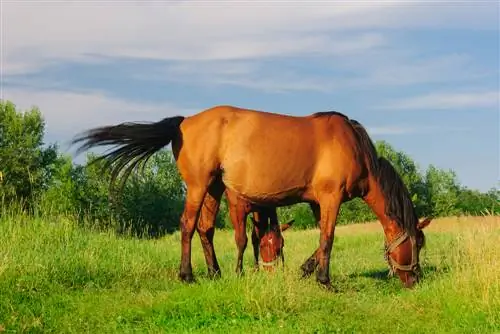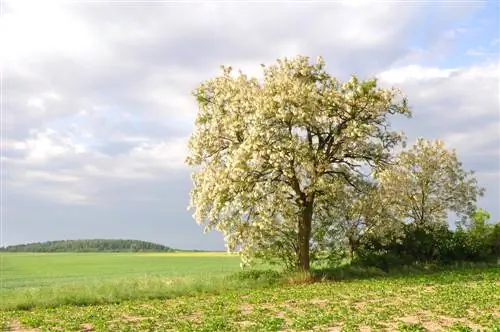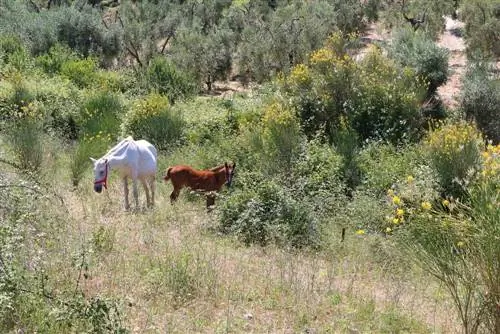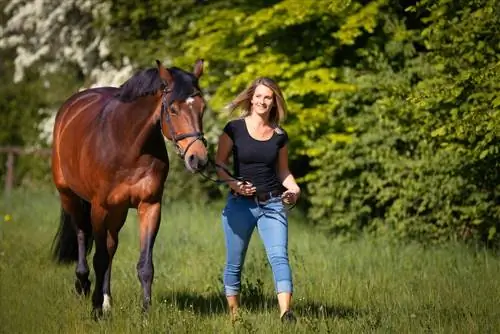- Author admin [email protected].
- Public 2023-12-16 16:46.
- Last modified 2025-01-23 11:22.
It's a beautiful sight when horses trot across the paddock in summer and enjoy the fresh grass. However, not all wild herbs are he althy. In this article we clarify whether the widespread meadowfoam is well digestible for animals.
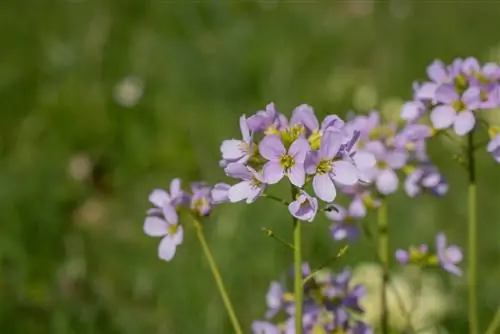
Is meadowfoam poisonous to horses?
Meadowfoam is harmless to horses in small quantities, but can be toxic in larger quantities and cause digestive problems or laminitis. Horses usually avoid the spicy taste and don't like to eat it.
Is meadowfoam poisonous to horses?
If horses eata littleMeadowfoam weed is consideredsafe. Inlarger quantitiesHowever, the mustard oil glycosides contained in this plant arequite risky for the animals. First of all, they lead to severe digestive problems.
There are also reports that the horses suffered from laminitis caused by meadowfoam. This disease, which must be taken seriously and is extremely painful for the animal, leads to inflammation of the hoof dermis, which can progress to a chronic stage just 48 hours after it begins.
Do horses like to eat meadowfoam?
If the meadowfoam does not grow heavily through the grass,horses eatthe wild herbdoes not. The hot, peppery taste, reminiscent of cress, seems not comfortable for them.
The animals first take a so-called test bite from the plants, which they use to assess the toxicity of the meadowfoam. Wild herbs that taste unpleasant are then avoided.
Then why do horses eat meadowfoam?
Horses eat meadowfoamfor various reasons:
- The ability of animals to judge the inedibility of plants seems to decrease as a result of prolonged stable feeding.
- Domesticated horses can only choose their food to a limited extent, despite being grazed.
- Even extreme hunger due to a lack of food can lead to excessive consumption of meadowfoam.
Is meadowfoam in hay dangerous for horses?
Due todegradation processes, thetoxic substancesin the hay lose theireffectiveness. This However, this does not apply to silage, which is often fed as an alternative to dust-allergic animals.
Tip
Check paddocks for poisonous wild herbs
Close relatives of the meadowfoam such as bitter foamweed, gray cress and rapeseed are also not safe for horses. Therefore, before going to the pasture, check which plants are growing in large quantities in the paddock you use.

